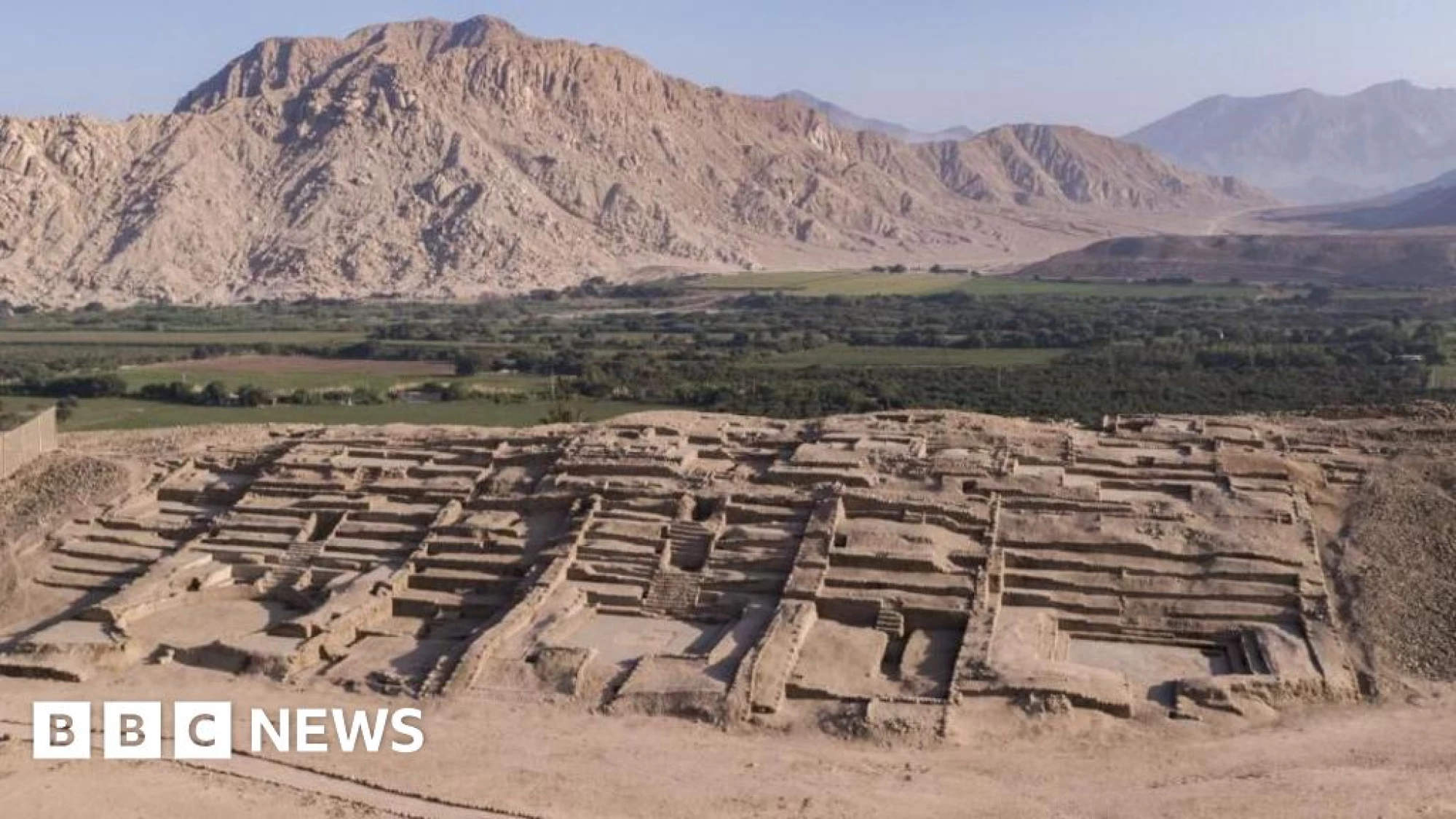Archaeologists discover 3,500-year-old city in Peru

Researchers believe Peñico served as a trading hub linking ancient Pacific coast communities with those living in the Andes and Amazon.
Watch LiveBritish Broadcasting CorporationHomeNewsSportBusinessInnovationCultureArtsTravelEarthAudioVideoLiveHomeNewsIsrael-Gaza WarWar in UkraineUS & CanadaUKUK PoliticsEnglandN. IrelandN. Ireland PoliticsScotlandScotland PoliticsWalesWales PoliticsAfricaAsiaChinaIndiaAustraliaEuropeLatin AmericaMiddle EastIn PicturesBBC InDepthBBC VerifySportBusinessExecutive LoungeTechnology of BusinessFuture of BusinessInnovationTechnologyScience & HealthArtificial IntelligenceAI v the MindCultureFilm & TVMusicArt & DesignStyleBooksEntertainment NewsArtsArts in MotionTravelDestinationsAfricaAntarcticaAsiaAustralia and PacificCaribbean & BermudaCentral AmericaEuropeMiddle EastNorth AmericaSouth AmericaWorld’s TableCulture & ExperiencesAdventuresThe SpeciaListEarthNatural WondersWeather & ScienceClimate SolutionsSustainable BusinessGreen LivingAudioPodcastsRadioAudio FAQsVideoLiveLive NewsLive SportHomeNewsSportBusinessInnovationCultureArtsTravelEarthAudioVideoLiveWeatherNewslettersWatch LiveArchaeologists unveil 3,500-year-old city in Peru1 day agoShareSaveJessica RawnsleyBBC NewsShareSaveReutersArchaeologists have announced the discovery of an ancient city in Peru's northern Barranca province.
The 3,500-year-old city, named Peñico, is believed to have served as a key trading hub connecting early Pacific coast communities with those living in the Andes mountains and Amazon basin.
Located some 200km north of Lima, the site lies about 600 metres (1,970 feet) above sea level and is thought to have been founded between 1,800 and 1,500 BC - around the same time that early civilisations were flourishing in the Middle East and Asia.
Researchers say the discovery sheds light on what became of the Americas' oldest civilisation, the Caral.
Drone footage released by researchers shows a circular structure on a hillside terrace at the city's centre, surrounded by the remains of stone and mud buildings.
https://www.bbc.com/news/articles/c07dmx38kyeo
Rating: 5